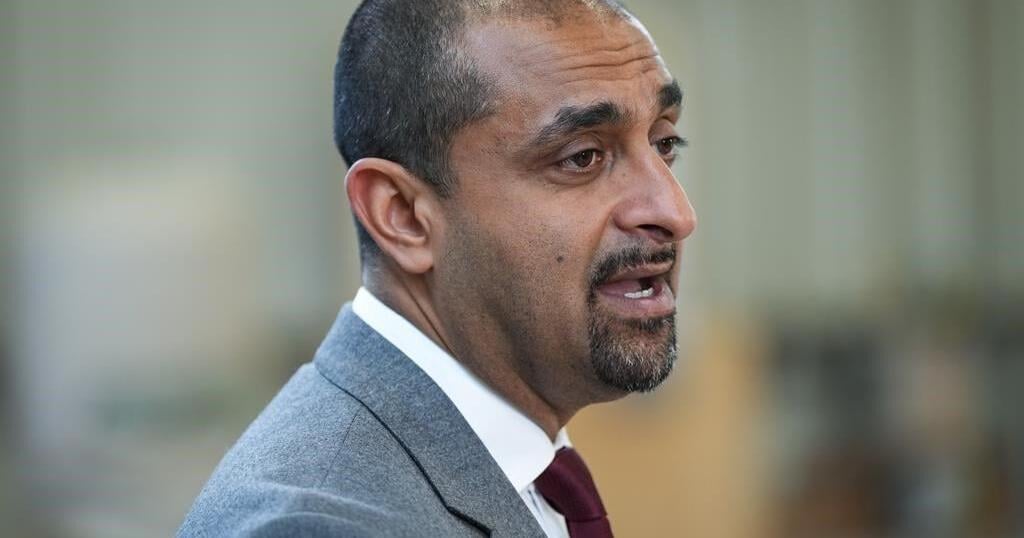VANCOUVER – Lawyer Rob Patterson says the phones at B.C.’s Tenant Resource and Advisory Centre never stop ringing — but he worries a decision allowing a landlord to impose a 27 per cent rent increase will fuel even more demand for its services.
Patterson, a legal advocate with the centre, said a regulation allowing landlords to apply to British Columbia’s Residential Tenancy Branch for such rent increases, above an annual limit set by the province, should be struck from the books.
In a May ruling that was posted on social media this week, an arbitrator with the board allowed landlord Kriss Canada Ltd. to raise rent beyond the 3.5 per cent limit set by the province for this year because its mortgage costs ballooned with rising interest rates.
The regulation, Patterson said, has been rarely utilized in his years with the centre, and he said the province should take swift action to strike it from the books.
“If this is indeed an opening-of-floodgates situation, it’s pouring gasoline on a fire in terms of housing affordability in the province,” he said. “Pretty decisive action is needed in a pretty quick turn-around to nip this in the bud.”
He said provincial housing policy shouldn’t insulate investors from losses if they make risky bets on the housing market.
The arbitrator’s decision outlines how the company bought the four-plex property in October 2021 with a variable-rate mortgage that started at 1.9 per cent but more than tripled by June 2023.
The decision says the owners told the arbitrator the rate increases made the rent levels unsustainable and that the resultant financial losses were not foreseeable “under reasonable circumstances.”
The tenants meanwhile told the arbitrator the property was an investment, and shortfalls should not be classified as a loss since the landlords would “come away with a million-dollar house.”
The arbitrator found the company “experienced dramatic interest rate increases which have made managing the property unsustainable” and it should be allowed to increase rent beyond the 3.5 per cent limit.
“The landlords testified that they have always used a variable mortgage interest rate. Over the years, the variable rate has been stable, and it would be reasonable that the interest rate may increase by a few per cent at renewal,” the decision says.
“I find the landlords exercised care, foresight, judgment, financial prudence, and due diligence in purchasing and financing the residential property, but significant increases in the mortgage interest rate occurred due to unforeseen events.”
Patterson said the decision could let landlords declare “open season” on tenants to insulate themselves from risks taken when they bet on rental housing.
“It’s just bad policy from the beginning,” he said. “It encourages risky behaviour from landlords, from property purchasers.”
Patterson said the regulation could be “quickly and painlessly” repealed by the provincial government.
“The rules need to change now to prevent this from being a commonplace thing that happens across the Lower Mainland and across the province,” he said. “The housing affordability crisis is already so awful, it’s already so pronounced. We don’t need to pour more gasoline on that fire. It’s doing just fine on its own.”
Other decisions by arbitrators have rejected landlords’ attempts to raise rents due to mortgage financing increases.
A June decision involved an unnamed landlord who also bought a rental unit with a variable rate mortgage, relying on her broker or banker’s advice that rates would hold steady.
“Mortgage interest rates often rise (and fall) and are a reasonably foreseeable circumstance,” that arbitrator found. “Moreover, in this case the mortgage rates have been increasing steadily since the Landlord purchased the property as opposed to a sudden, wholly unexpected and extraordinary increase.”
Housing Minister Ravi Kahlon said in a written statement Thursday that the regulation allowing landlords to apply for “exceptional” rent increases was put in place by the previous government.
The statement said the case allowing for the 27 per cent increase is the first the ministry is aware of since it began collecting data in 2021.
“Renters are struggling with the high cost of rent,” the statement said. “I know people have a lot of questions and I’ve directed staff to review this policy and how it impacts renters in the current context.”
This report by The Canadian Press was first published Aug. 15, 2024
